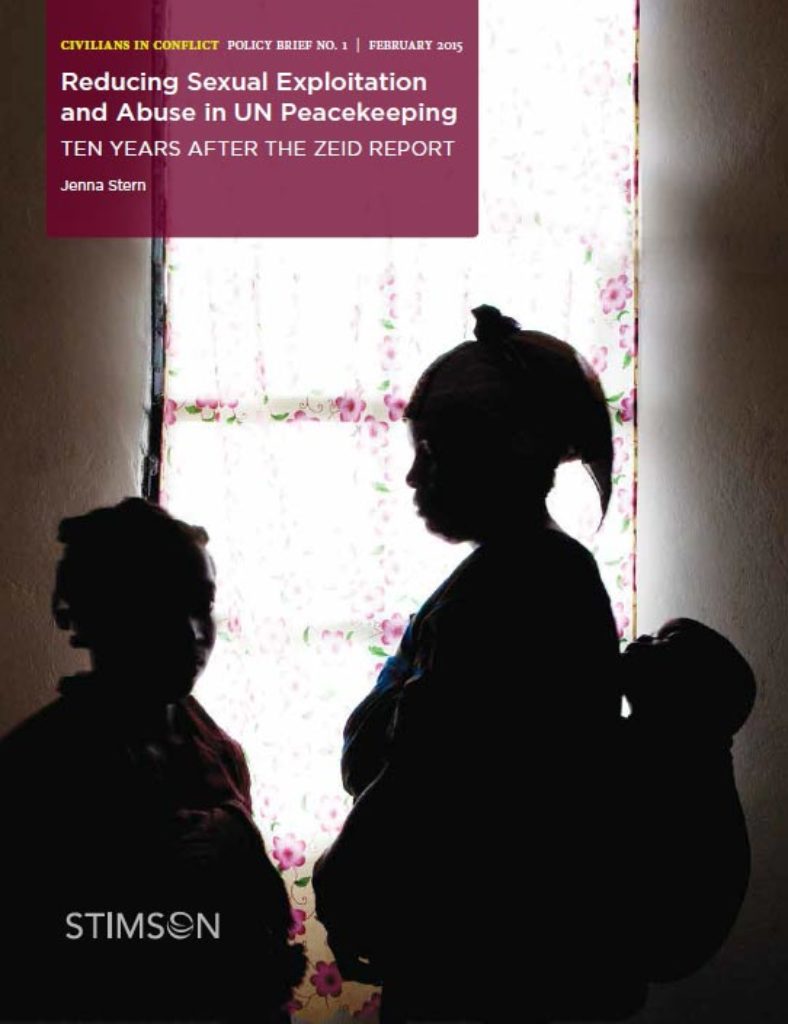In 2004, after numerous allegations of sexual exploitation and abuse (SEA) by United Nations (UN) peacekeepers made international headlines, both the UN Security Council and US Congress deliberated over what actions should be taken to solve the problem of peacekeepers violating the populations they were sent to protect. UN Secretary-General Kofi Annan asked the Permanent Representative of Jordan, His Royal Highness Prince Zeid Ra’ad Zeid al-Hussein, a former civilian peacekeeper and the UN ambassador of one of the major peacekeeping troop contributors, to prepare a comprehensive report on sexual exploitation and abuse in UN peacekeeping missions.
The Zeid Report, released in March 2005, recommended the establishment and implementation of a comprehensive strategy to eradicate SEA by UN peacekeeping personnel. The report’s recommendations included propagation of UN standards of conduct, reforming the investigative process, strengthening organizational, managerial and command responsibility, and instituting individual disciplinary, financial and criminal accountability. Releasing the Zeid Report was a significant step for the UN in its effort to combat SEA. The report was an acknowledgement by the Secretary-General that SEA in peacekeeping was a major problem and set forth a rough plan for action.
This year marks the 10-year anniversary of the Zeid Report’s release. Since then, the UN has taken several steps to implement these recommendations. First, an entirely new Conduct and Discipline Unit (CDU) was established at UN headquarters. Second, training, investigative and victim assistance procedures have been developed through a “three-pronged” strategy of prevention, enforcement and remedial action. Third, the UN’s administrative justice system was overhauled.
There has been a general downward trend in allegations of SEA since the implementation of many Zeid Report recommendations, even though the number of total personnel serving in peacekeeping operations has increased within the last 10 years from 81,199 to 122,984. In examining the data, it is important to remember that many allegations of SEA still go unreported; however, avenues of community reporting have also been strengthened. If the data represents the trend, if not the precise number of incidents, then UN reforms and initiatives may be having an impact.
This brief assesses the development of the UN’s SEA policy in the 10 years since the Zeid Report’s recommendations were released. It describes the progress made in reducing the overall number of SEA occurrences and what policy areas the UN will focus on in the future. The brief recommendations are derived from interviews with UN officials and research of policies implemented within the last decade.
Watch Jenna Stern discuss the issue brief below or here.
This policy brief is the first in a series of Stimson’s Civilians in Conflict project publications, which will explore issues relevant to this year’s high-level review of UN peacekeeping, with a focus on how UN interventions can better protect civilians.

